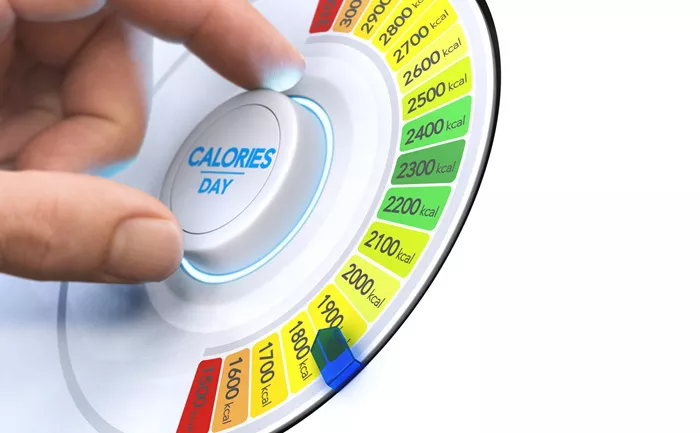Understanding your daily calorie limit is crucial if you’re serious about improving your health, fitness, or body composition. Whether your goal is weight loss, muscle gain, or maintenance, knowing how many calories your body needs each day is the foundation of any effective diet and exercise plan. This article breaks down what daily calorie limits are, how to calculate them, and how to tailor your intake to your personal goals.
Why Caloric Awareness Is Important
Calories are the units of energy that fuel your body. Every activity—from thinking to running—uses calories. Consuming too few or too many can disrupt your metabolism, your energy levels, and your fitness goals. That’s why understanding your daily calorie needs is essential, especially if you’re following a fitness Dietikon.
What Is a Daily Calorie Limit?
Your daily calorie limit refers to the number of calories you should consume each day to either maintain, lose, or gain weight. It depends on many factors, including age, gender, weight, height, activity level, and fitness goals.
Calories In vs. Calories Out
This is the basic principle of weight management. If you consume more calories than you burn, you gain weight. If you consume fewer, you lose weight. Matching your intake with your body’s needs is key.
Basal Metabolic Rate (BMR)
Your BMR is the number of calories your body burns at rest just to maintain vital functions like breathing and circulating blood. BMR makes up the bulk of your daily calorie expenditure.
Total Daily Energy Expenditure (TDEE)
Your TDEE includes your BMR plus the calories burned through activities like walking, exercising, and even digestion. Calculating your TDEE gives you a more complete view of your daily calorie needs.
How to Calculate Your Daily Calorie Limit
To get your daily calorie limit, you must first calculate your BMR and then adjust for your activity level. Use the Harris-Benedict Equation or the Mifflin-St Jeor Formula for accuracy.
Using the Mifflin-St Jeor Formula
For Men: BMR = 10 × weight(kg) + 6.25 × height(cm) – 5 × age(y) + 5
For Women: BMR = 10 × weight(kg) + 6.25 × height(cm) – 5 × age(y) – 161
Once you have your BMR, multiply it by an activity factor:
- Sedentary (little or no exercise): BMR × 1.2
- Lightly active (light exercise/sports 1–3 days/week): BMR × 1.375
- Moderately active (moderate exercise/sports 3–5 days/week): BMR × 1.55
- Very active (hard exercise/sports 6–7 days a week): BMR × 1.725
- Extra active (very hard exercise, physical job): BMR × 1.9
Setting Goals Based on Your Daily Calorie Limit
Your goal determines how many calories you should add to or subtract from your TDEE.
For Weight Loss
To lose weight, create a calorie deficit by consuming fewer calories than you burn. A deficit of 500–1000 kcal/day can help you lose about 0.5–1 kg per week. Don’t go below 1200 calories for women or 1500 for men unless supervised by a doctor.
For Muscle Gain
If you want to build muscle, eat more than your TDEE. A surplus of 250–500 kcal/day is effective when combined with strength training and a Healthy Gym Meals plan rich in protein and nutrients.
For Maintenance
If you’re happy with your current weight, aim to match your calorie intake to your TDEE. This helps maintain balance and keeps your energy levels steady.
How Activity Affects Your Caloric Needs
Your lifestyle plays a major role. Sedentary people need far fewer calories than athletes. Even simple activities like walking can increase your needs. Tracking your movement can help fine-tune your calorie targets.
Include Exercise and NEAT
NEAT stands for Non-Exercise Activity Thermogenesis. It includes things like fidgeting or doing chores. Increasing NEAT can help with fat loss without structured exercise.
Quality Over Quantity: Choose Nutrient-Dense Foods
Not all calories are equal. 500 calories from soda won’t fuel your body like 500 calories from lean chicken and vegetables. Focus on nutrient-dense foods that provide essential vitamins and minerals. This is especially important when eating healthy After Gym Meals to aid recovery and muscle repair.
Tracking and Adjusting Your Calories
Use apps or food journals to monitor your intake. Over time, make adjustments based on how your body responds. Your needs may change due to weight loss, muscle gain, or changes in activity levels.
Listen to Your Body
Feeling tired or hungry constantly might indicate that your current intake is not ideal. Be flexible and adjust your calories as needed. Prioritize consistency over perfection.
Common Mistakes When Calculating Calorie Needs
- Overestimating activity levels
- Ignoring hidden calories from sauces, drinks, or snacks
- Not adjusting intake when weight or activity level changes
- Focusing too much on numbers without considering food quality
Real-Life Example
Let’s take a 30-year-old man who weighs 70 kg, is 175 cm tall, and exercises 4 times a week. Using the Mifflin-St Jeor formula:
BMR = 10×70 + 6.25×175 – 5×30 + 5 = 1663.75 kcal
With moderate activity (×1.55): TDEE = 1663.75 × 1.55 = ~2578 kcal/day
To lose weight: aim for ~2078 kcal/day
To gain muscle: aim for ~2828 kcal/day
Tips for Staying on Track
- Meal prep to control portion sizes
- Stay hydrated—thirst is often mistaken for hunger
- Include protein at every meal to maintain muscle mass
- Use measuring cups or a kitchen scale for accuracy
- Take periodic breaks to avoid burnout
Conclusion
Understanding your daily calorie limit gives you control over your health journey. Whether you’re aiming to lose weight, build muscle, or maintain your physique, aligning your intake with your body’s needs is the key. Calculate your TDEE, define your goals, and monitor your progress. Remember: consistency beats perfection, and smart nutrition is the cornerstone of a healthy life.
Make informed food choices and fuel your body with purpose. Your calorie limit is not just a number—it’s a roadmap to better health.
Related Topics:
What Can I Eat on a 1200 Calories Diet Daily?


